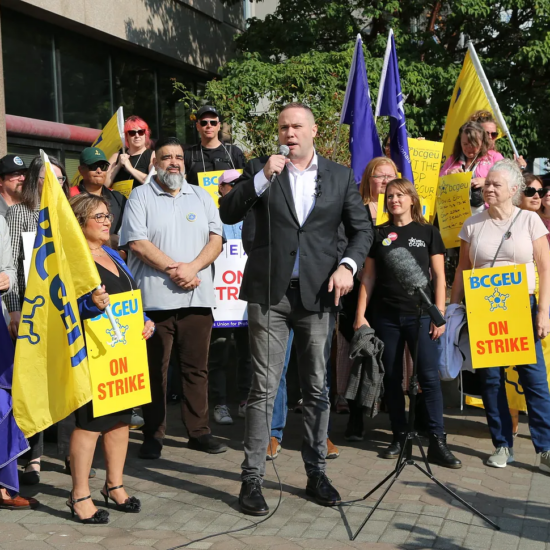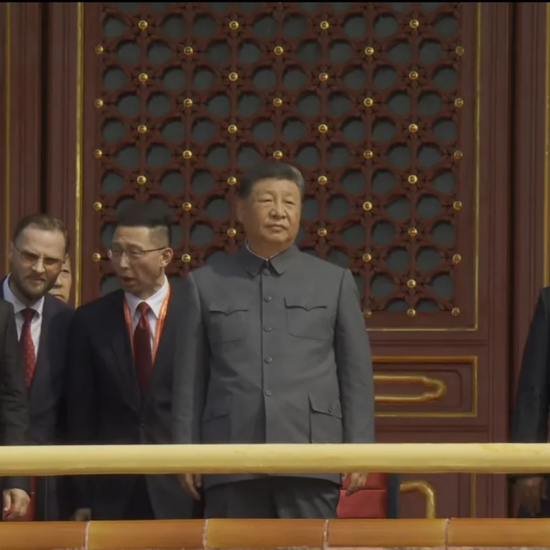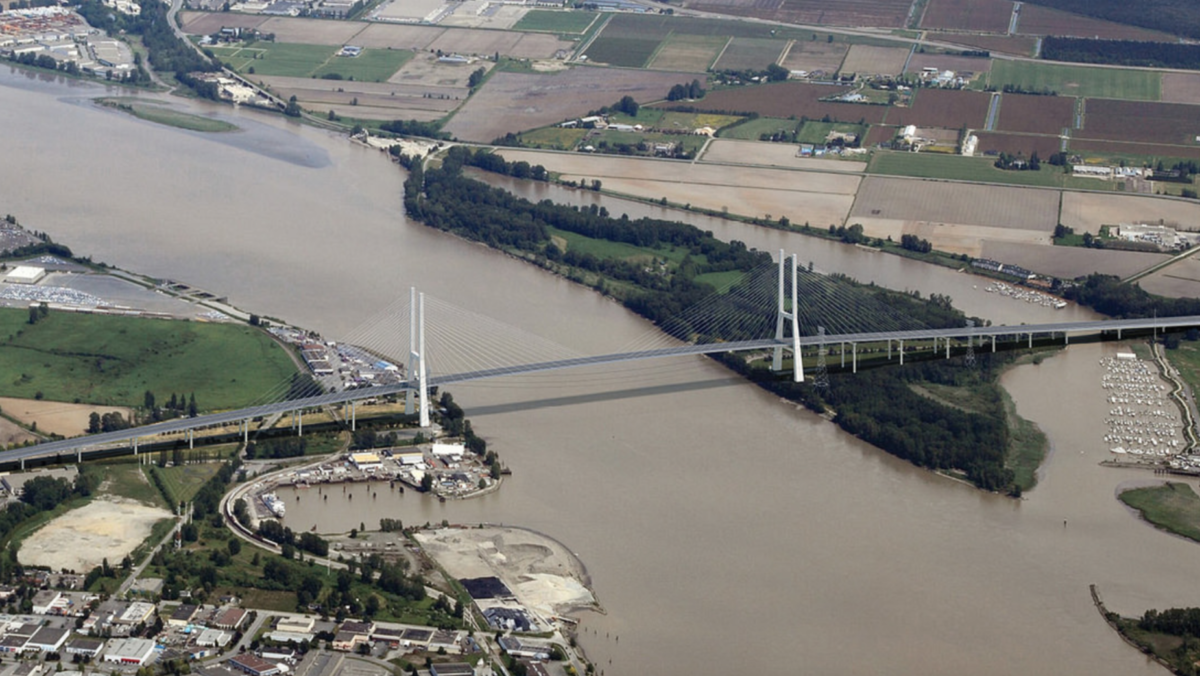
Bob Mackin
Key players in two groups that were competing for the $3.5 billion Massey Tunnel replacement project are also partners building a $4.24 billion federal bridge in Montreal.
theBreaker has learned that the SNC-Lavalin-led Pacific Skyway Partners and ACS Infrastructure’s Gateway Mobility Solutions were the two remaining teams when NDP Transportation Minister Claire Trevena announced the cancellation on Sept. 6.
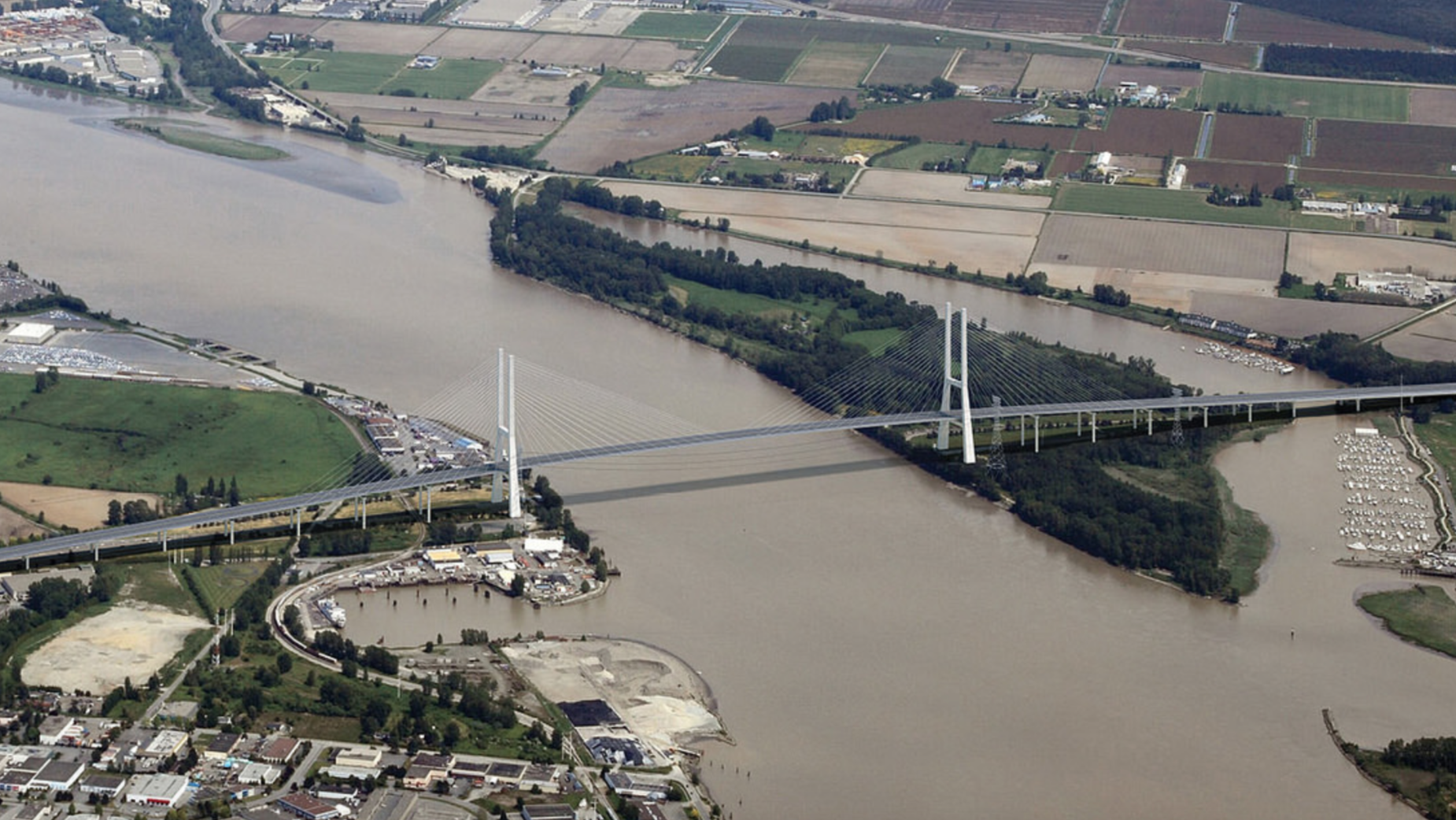
B.C. government rendering of the cancelled $3.5 billion Richmond-to-Delta bridge.
The government said it will review whether a 10-lane bridge, smaller bridge or expanded tunnel should be built.
There had been three groups qualified for the shortlist by the previous BC Liberal government, but Trevena spokesman Ryan Jabs said the ministry “cannot name the proponents that will receive stipends as a result of the cancellation of procurement, since we are obligated to respect confidentiality.”
Louis-Antoine Paquin, SNC-Lavalin’s media relations manager, told theBreaker “Pacific Skyway Partners will collect the $2 million, which is partial compensation for the consortium’s bidding costs.” PSP also included Fluor Canada Ltd., John Laing Investment Ltd., and American Bridge Company.
Kiewit Inrastructure Group vice-president and area manager Ross Gilmour told theBreaker that his company was “bound by confidentiality requirements in the proponent agreement,” and referred questions to the provincial government.
Kiewit was partnered with Macquarie Corporate Holdings Pty Ltd., VINCI Concessions, Janin Atlas Inc., and BA Blacktop under the Lower Mainland Connectors banner.
A source told theBreaker that Kiewit dropped out of bidding, which means the Gateway Mobility Solutions group led by Spain’s Grupo ACS was the only other bidder. ACS executive chairman and CEO Florentino Pérez Rodríguez is president of Real Madrid FC.
Like SNC-Lavalin, it is eligible to receive $2 million compensation. ACS’s partners were Aecon Concessions, Hochtief PPP Solutions North America Inc., Star America Infrastructure Partners, Flatiron Constructors Canada and Dragados Canada Inc. ACS has not immediately responded for comment.
SNC-Lavalin, coincidentally, successfully teamed-up with Gateway’s ACS, Dragados, Flatiron and Hochtief in the Signature on the Saint Lawrence group to build the new Champlain Bridge in Montreal. Kiewit and Flatiron built the $3 billion Port Mann Bridge. On Sept. 7, CBC revealed they were paid $572 million more than what was called for in the original fixed-price contract.
It is common for friends on one megaproject to be foes on another. The phenomenon has raised the eyebrows of anti-corruption experts concerned about the risks of bid-rigging. (There is no direct evidence of bid-rigging on the Massey project.) According to volume 3 of the Charbonneau Commission of Inquiry, which investigated corruption in Quebec’s construction industry, “Colluding companies seek to eliminate competition and obtain as many contracts and as much profit as possible, while preserving the appearance of a competitive market.”
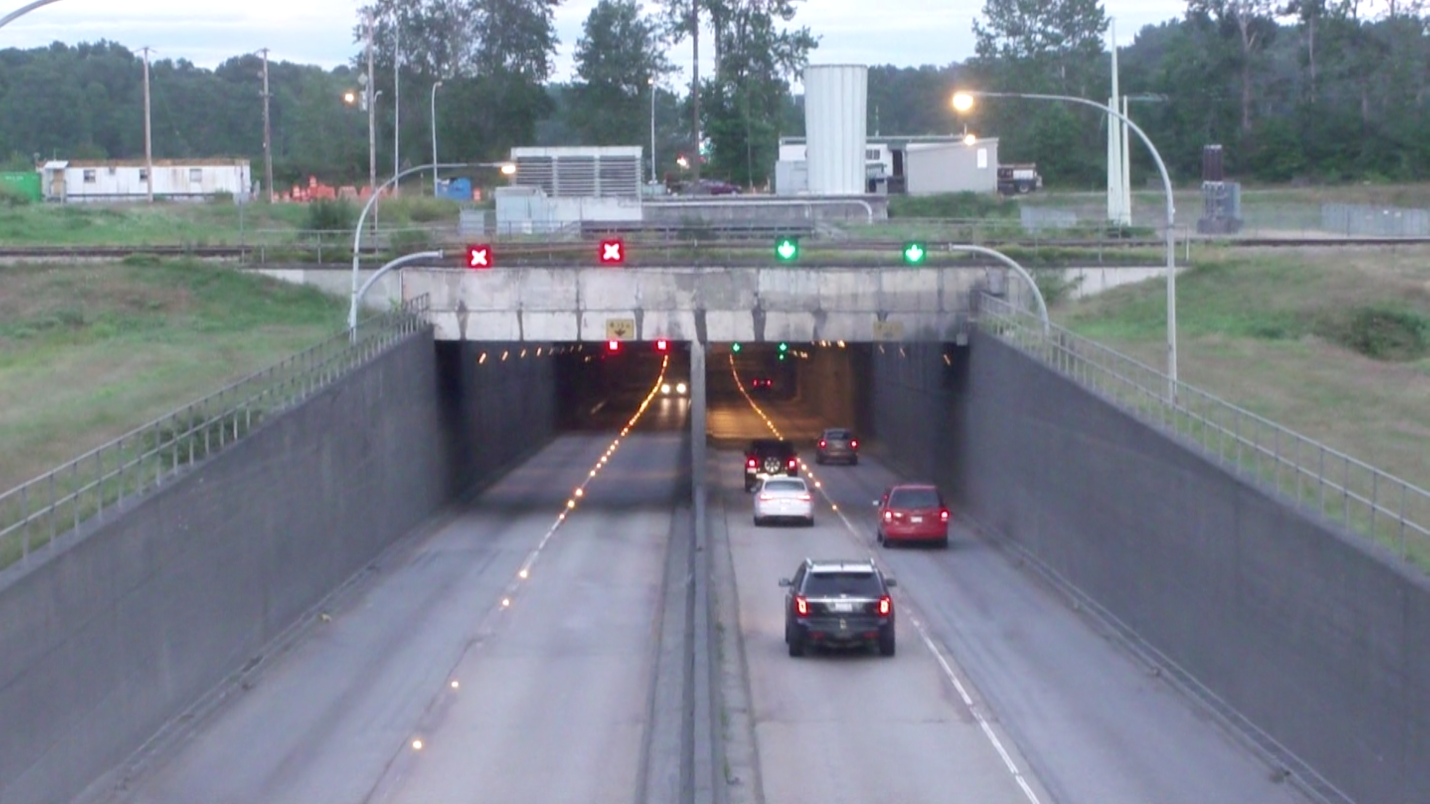
The 1959-built Massey Tunnel (Mackin)
In Question Period on Sept. 13, ex-Transportation Minister Todd Stone revealed the project’s low bid was $2.6 billion, which was $900 million less than the government-announced $3.5 billion budget. (During the election, the NDP released leaked documents that showed $8 billion in debt servicing costs over 50 years.) A source close to the project told theBreaker that the low bid was submitted by the ACS-led group, which proposed fabricating steel for the bridge in Spain.
The source said ACS is “steaming,” but BC Liberal Stone’s saving grace may be that he spoke about it in the Legislature, where members have privilege. SNC-Lavalin had lost patience in the procurement and remained involved for the sake of the compensation. But neither will get the $2 million payment automatically; they will have to file claims and a legal opinion is likely to ensure that the bids were compliant.
Stone’s exchange with Trevena, a former BBC reporter, could only be described as bizarre.
“I have to say that I’m pretty incredulous that this member, of all people, would be asking questions about this project,” Trevena said in the Legislature. “It was under his government that it went ahead as basically a pet political project of the former Premier, Christy Clark. And I would also expect that the member, as a former minister, would know that I cannot divulge information on the bid process.”
To which Stone shot back: “Being a former minister, I certainly know that you can disclose information. In this particular case, the Minister of Transportation should disclose this information.”
Under Stone, the Ministry of Transportation became one of the worst-performing agencies in government, based on complaints and requests for review received by the Office of the Information and Privacy Commissioner in 2015-2016. The 51 complaints against the ministry were just behind the 57 filed against the Insurance Corporation of B.C., which was also Stone’s responsibility, for second-place, government-wide.
theBreaker was one of the complainants over terminal secrecy by Stone’s staff about the Massey Tunnel Replacement Project and the SNC-Lavalin-built Evergreen Line Rapid Transit project.
Only after the NDP replaced the Liberals in July did the government relent on one file and agree with theBreaker that the costs of SNC-Lavalin’s change orders on the Evergreen Line should be released. SNC-Lavalin submitted no evidence to support its opposition to disclosure. An OIPC adjudicator is expected to rule this fall.
In 2013, the World Bank banned SNC-Lavalin from bidding on its projects for 10 years, over bribery at a Bangladesh bridge project. That was just one of many scandals involving a company that has deep relationships with the B.C. government. The troubled Montreal company also has contracts with BC Hydro for the Site C dam and John Hart Generating Station, maintains BC Ferries terminals and operates the Canada Line for TransLink and Bill Bennett toll bridge in Kelowna.







